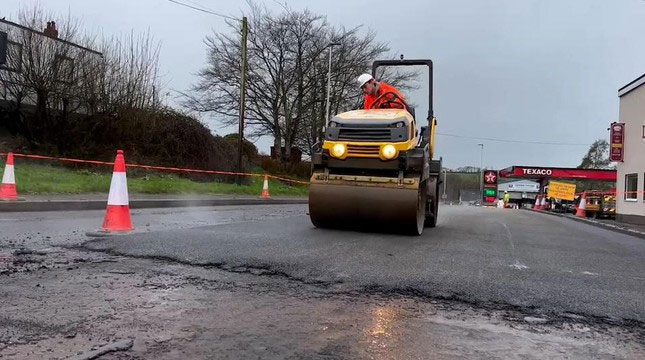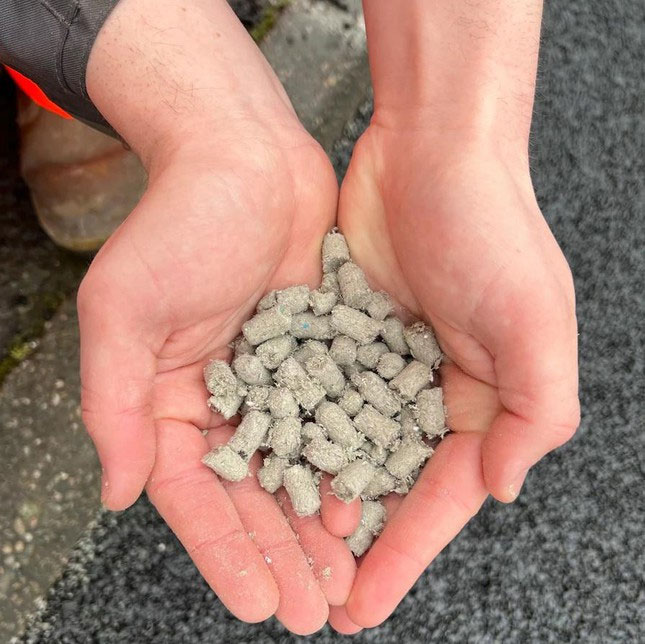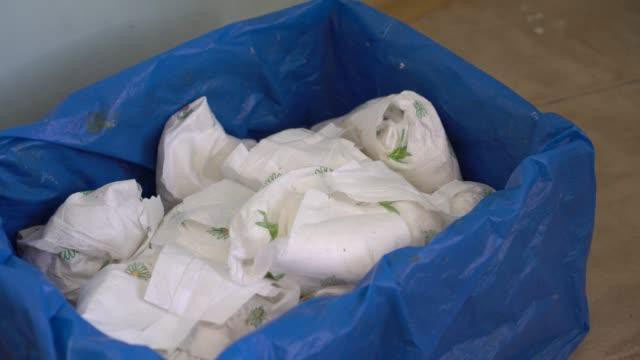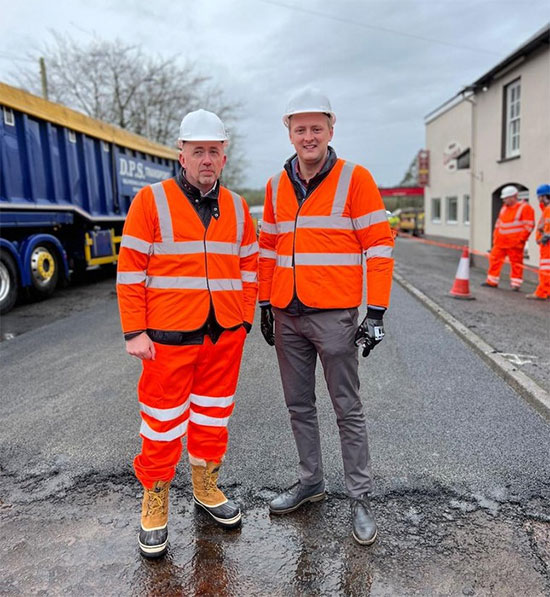Does using used diapers for road paving cause odors? – No, Wales (United Kingdom) is using over 100,000 diapers for road paving, becoming the first place in the world to do so.
Using Diapers for Road Surfacing
A highway is being constructed in western Wales as part of a pilot project focused on environmental protection using used diapers.
More than 100,000 used diapers have been cleaned, shredded into gray fiber pieces, and mixed with asphalt. This week, construction workers are using them to pave a 2.4 km stretch of road.
UK MP Ben Lake stated, “The ‘diaper road’ could be a game-changer for infrastructure approaches in Wales.” While people are still encouraged to switch to reusable cloth diapers, disposable diapers are now being effectively recycled, helping to reduce pressure on landfills and protect the environment.

The road paved with over 100,000 recycled diapers. (Photo: The Washington Post).
Approximately 140 million diapers are thrown away each year in Wales. In the UK, this figure is estimated at 3 billion, accounting for 2-3% of total household waste. In the US, over 18 billion diapers are disposed of annually.
The majority of used diapers end up in landfills, where they take years to decompose. Cloth diapers also have environmental costs as their production and washing consume energy and water.
A 2008 report from the UK Environment Agency indicated that the environmental impact of using cloth diapers could be higher or lower than that of using disposables, depending on how the diapers are laundered.
Jason Hallett, a professor of sustainable chemical technology at Imperial College London, noted that paving roads with diapers will not make the road “greener,” as both asphalt and diaper components are made from hydrocarbons, but it is less harmful to the environment than leaving them in landfills.
Several countries have experimented with building roads from plastic waste. India produced a binder from plastic waste to create a road in the city back in 2002. Since 2015, the Indian government has mandated that road construction in densely populated urban areas must use plastic waste.
The Netherlands opened the world’s first bike path made from recycled plastic.
California has used discarded plastic bottles and other packaging to improve a three-lane highway. Now, Wales is building the world’s first “diaper road.”
NappiCycle, a Welsh company that supplied recycled diapers for the pilot project, is one of only two diaper recycling companies in the world (the other is in Italy). NappiCycle’s director, Rob Poyer, stated that diapers are very difficult to break down into their plastic, cellulose, and super-absorbent polymer components.

Small gray pieces made from shredded diapers have been added to the asphalt. (Photo: The Washington Post).
Waste Recycling Initiatives
Local governments in Wales are increasing recycling rates and adopting flexible methods to achieve their goals. In Swansea, the second-largest city in Wales, officials have implemented a measure called “rattle check” – they shake garbage bags to listen for any rattling sounds to identify recyclable items. If a garbage bag contains recyclable items, the homeowner will be fined £100 (approximately 3.1 million VND).
Other cities in Wales have reduced the frequency of garbage collection while maintaining weekly food waste collection. Since 2018, food waste collection in the town of Conwy has increased by 31%, and dry material recycling has risen by 16%. Conwy recycles over 70% of its household waste.

In the US, over 18 billion used diapers are disposed of each year. (Photo: iStock).
Food waste typically accounts for about a quarter of household waste. However, most residents in Wales separate food waste into containers collected weekly and taken to anaerobic digestion facilities, where the waste is converted into renewable energy or used as fertilizer.

NappiCycle director Rob Poyer (left) and MP Ben Lake observe the road work. (Photo: The Washington Post).
Now, the attention of the Welsh government is turning to diapers and other absorbent hygiene products – which account for about 9% of waste. If authorities determine that the asphalt is not adversely affected by the addition of recycled diapers and meets environmental standards, recycled diapers could be used more widely. Wales has approximately 55,000 km of roads.


















































